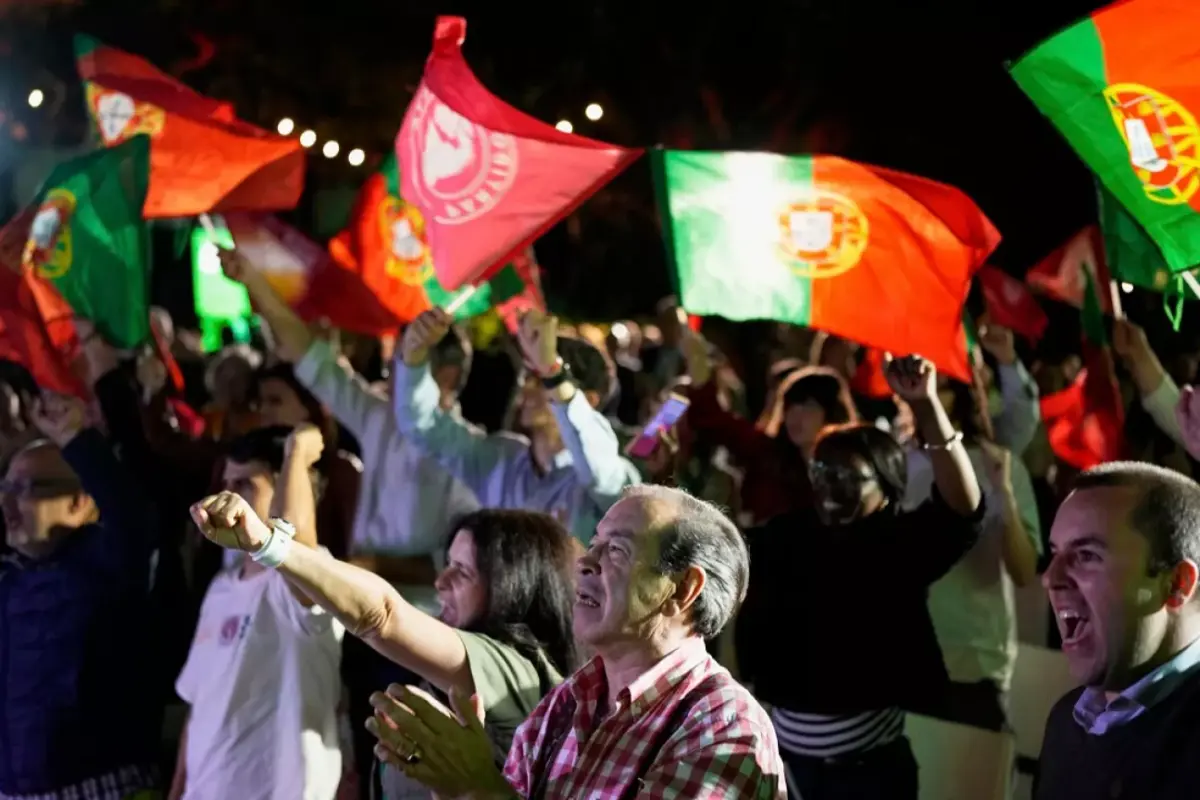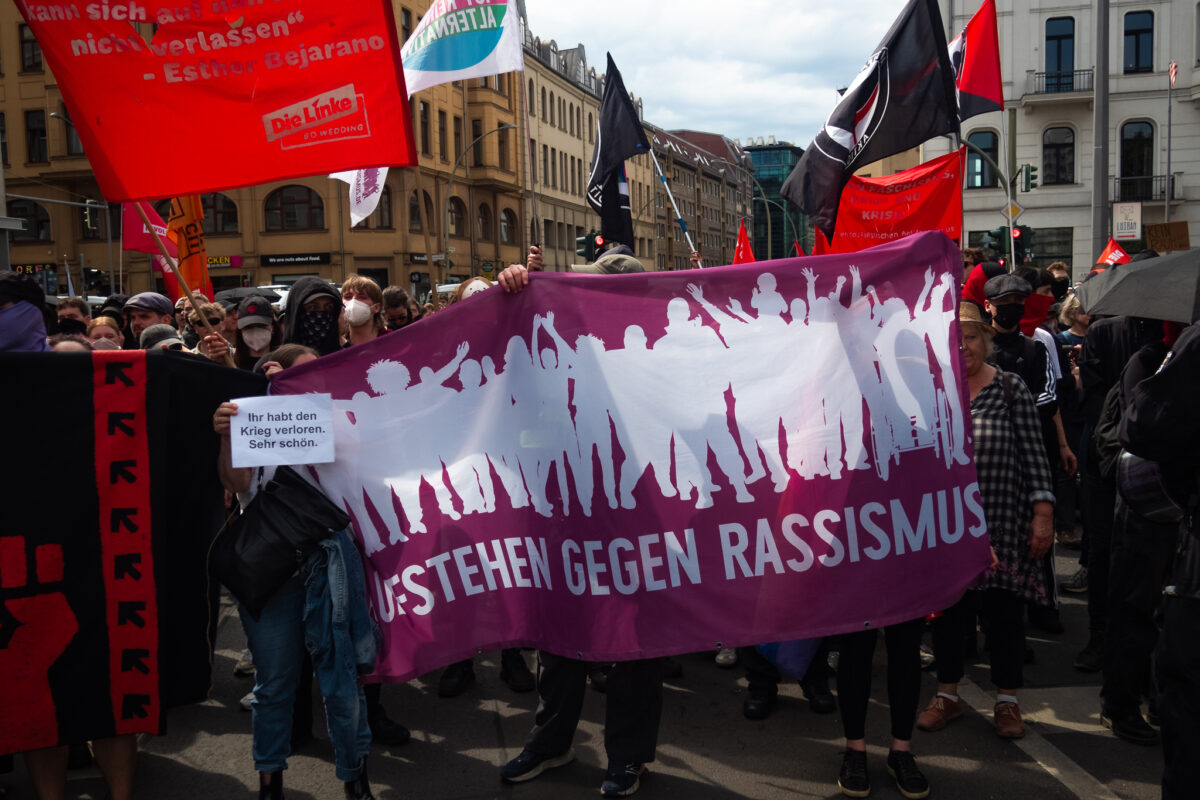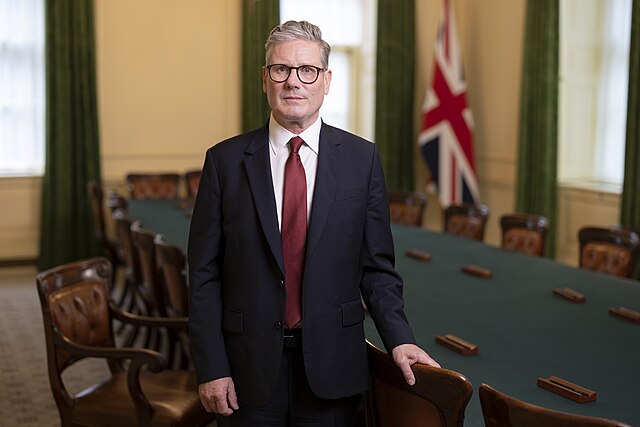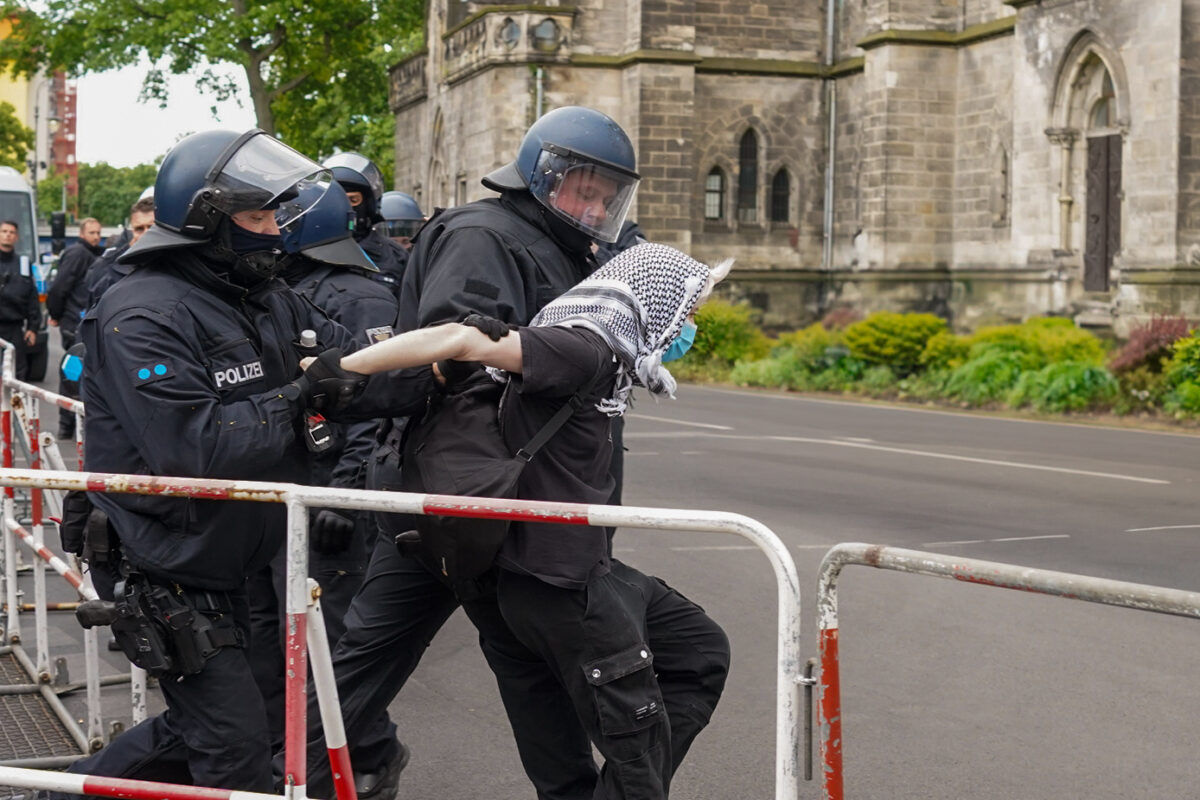“If the people want to go to hell, that is where we will go.” This quote flooded Portuguese social media in the aftermath of the 18 May electoral night. It originates in a 1974 interview by Salgueiro Maia, one of the army rebels of the Carnation Revolution, where he defended that the military’s role was only to create the conditions for the people to choose who they want to represent them freely, independently of their choices.
Back to 2025, the underlying tone of defeat can be traced back to two major election outcomes: the first one is that the left obtained its worst legislative results ever (a total of 32,61% amongst the four parties), with a particularly disastrous result from the Socialist Party (PS), which led to its leader, Pedro Nuno Santos’ immediate resignation. Beyond PS, the left suffered a resounding defeat: the Left Bloc (BE) dropped from five MPs to just one, whereas the Portuguese Communist Party (PCP) lost one, holding on to three elected representatives. There is one exception: Livre—a newcomer party founded in 2014 that first elected an MP in 2019—was able to capitalise on some centre-left voters by positioning itself closer to PS. Now spearheading the left in the parliament with six elected deputies, Livre has defended the increase in spending for armament during the campaign and is associated with pro-EU positions (where they sit in the Greens/EFA group), whilst the PCP and the BE are more euro-sceptic and against european integration based on neoliberal policies.
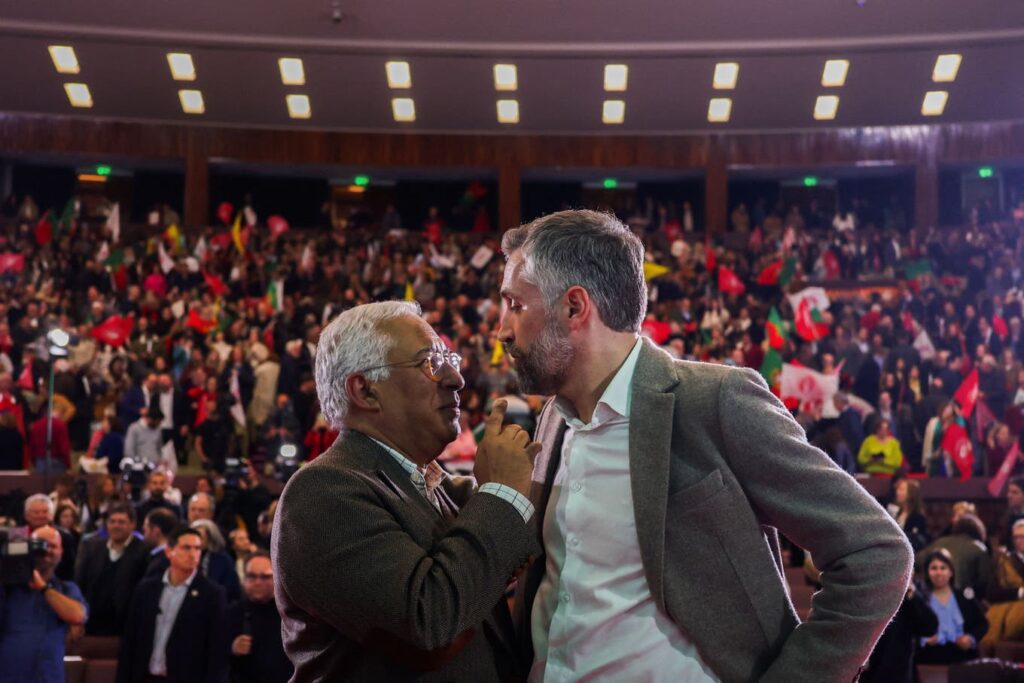
The second election outcome is that the far-right party Chega (Enough) secured its best result to date, being virtually tied with the socialists (at 58 seats each), brawling for a second place until the diaspora vote was counted. Ten days later, Chega’s win over the PS was indeed confirmed, increasing to 60 MPs. In 51 years of democracy, it’s the first time any party has come this close to the traditional PS-PSD (Socialist Party – Social Democratic Party) axis—and it just so happens to be a far-right one. Mostly, people are shaken by Chega’s seemingly unstoppable growth: from a single MP in 2019, when it first entered the political scene, to bulldozing its way into third place with 12 deputies in 2022, and then quadrupling its parliamentary seats to 50 last year, leaving quite some room to wonder how close to power would they reach in a future election.
Although the incumbent Democratic Alliance (a centre-right coalition composed of the Social Democratic Party/PSD and the People’s Party/CDS-PP) was the night’s winner, at 32,10%, they fall short of a majority—even if they partner up with their preferred ally, the market-fundamentalist Liberal Initiative (IL), which only achieved 5,53% of the vote.

Despite the prime minister’s denial of a potential coalition with Chega, the right-wing parties now hold two-thirds of the national assembly, surpassing the threshold to make a revision to the Constitution—a pledge immediately made by IL, even before the new parliament takes office. One of the aims of IL’s proposal is to replace the expression “paving the way for a socialist society” from the Constitution’s preamble with a “liberal democracy”. But a horizon of socialism is not the only thing under threat in the right-wing’s hands: beyond the ideological change, there are material motivations behind IL’s project, which clearly states that they want to reduce the central role of the State in the economy. The hell where we will go is one where social security, free education and universal access to a national, public health service—all promises that the April revolution started to erect—might no longer be guaranteed.
From Europe’s Success Story to Another Wake-up Call
Ten years ago, portugal was spreading hope across Europe with its left-wing ruling arrangement (the so-called geringonça), headed by the PS, and successfully reverting austerity measures imposed by the EU and the IMF. Some factors might explain how the country transformed into yet another example of Europe’s antidemocratic surge.
#1: The Erosion of Democracy
This national election was the third one the portuguese have seen in four years. This time, elections followed a vote of confidence lost by the prime minister, Luis Montenegro, after allegations of being involved in a conflict of interest case surrounding his family’s business. The previous election, in 2024, was also triggered by a corruption scandal involving the prime minister at the time, from PS. Two years before, portugal also had snap elections—forced by a Socialist Party looking for an absolute majority.
All in all, people are tired of heading to the polls year after year, whilst improvements in their living conditions, despite promises by the PSD and PS, are nowhere to be seen. The results suggest that public trust in the establishment is eroding, and people are looking for alternatives. On the right, that shift materialises in Chega and its (false) anti-system appeal, which campaigned under the slogan of “give me an opportunity to govern”, riding the wave of the worn-out image of the traditional parties. On the left, though much less significantly, that search for alternatives can perhaps be seen in the fact that only the newcomer Livre managed to grow its support. Both BE and PCP have seen a decrease in voting in recent years for two opposing reasons. On one hand, their more radical base was critical of the cooperation with PS during the geringonça government. On the other hand, their centre-left electorate blamed them for causing a political crisis by dropping support for that same government.
#2: Two Lies and a Truth
Chega’s success has to be read within the context of the European trend of far-right parties holding the second or third place in their political contexts. The party’s president, André Ventura, follows the same playbook as other authoritarian leaders such as Donald Trump or Jair Bolsonaro: not only did he also fall ill in the last days of the electoral campaign, he also frequently resorts to a Machiavellian approach of spreading misinformation, often related to migrants, to advance his xenophobic narrative and political goals. In fact, most of his campaign revolved around migration. Part of the issue is that journalists and media outlets, instead of debunking Ventura’s lies, give him extra airtime in the name of bigger audiences, serving as his “armed wing”, as investigative journalist Miguel Carvalho denounces. Between the last two elections, Ventura was interviewed 108% more than the current prime minister on the main private channels. Furthermore, a CNN investigation shows that 58% of Chega’s followers on X are fake. The comments made by these fake accounts were both on Chega’s accounts, to artificially amplify nationalist views, but also on the accounts of the Socialist and Social Democratic parties to discredit them.
It’s not exactly fair game—but the democratic right-wing, instead of holding their ground, is pandering to the far right and echoing their talking points. One example is the prime minister’s (PSD) announcement of plans to expel a large number of migrants in irregular situations from the country, and an overall toughening of immigration policy, paving the way for a further radicalisation of the right.
Chega’s growth also triggers a domino effect, with verbal, physical and symbolic violence on the rise. One example happened on election day itself, when the president of a Lisbon parish council was attacked by a man shouting “Vote Chega”. After the 2024 election, several MPs reported that the party’s presence in the assembly has fundamentally changed the dynamics of what was once a formal, immaculate institution—through racist and misogynistic attacks toward fellow deputies. The European Network Against Racism (ENAR) has also denounced an increase in cases of racism, tracing them back to Chega’s arrival in parliament. These are not isolated incidents, but rather reflect a broader sense of validation due to the party’s bully attitude—if they can freely spread hate in the house of democracy, its voters will feel justified in acting on it in the streets. What were once fringe and socially unacceptable behaviours are now increasingly seen as legitimate.
#3: The Myth of the Anti-Fascist Country
When the far-right started to gain ground all across Europe in the last decade, there was some sort of idealism present—either due to the strong values of the Carnation Revolution that overthrew the dictatorial regime, or because of the successes of the 2015 left-wing agreement which was being called Europe’s beacon of social democracy—creating the myth that portugal was an exception, that reactionary ideas wouldn’t come knocking back on its door.
Contrary to that idea, portugal is indeed a conservative, racist and sexist country: already in 2007, the former dictator Salazar was voted “the greatest Portuguese who ever lived”, in a public broadcast, with 41% support. Despite the country’s reluctance to open up conversations about its colonial past—namely by refusing to collect ethnic/racial data, against the UN’s advice—systemic racism is a reality that has been denounced by different groups and international organisations. The European Social Survey from 2018 shows that 62% of portuguese people manifest (biological and cultural) racism, with racism and discrimination affecting racialised people, the Roma (the only recognised minority in the country) and immigrants, with consequences in access to employment, education, health and housing. In fact, Ventura rose to fame on national television due to his anti-Roma stances, and resorted to them again this time around.
That portugal is an anti-fascist country, is nothing but a myth. It took only one “strongman” figure with airtime to tap into people’s prejudices and dismantle long-held leftist bastions (and attract votes from previous abstentionists). The geographical distribution of votes reflects this shift: in the North, traditionally dominated by the PSD, the party mostly maintained its lead, with Chega placing third. In the South, however, Chega made significant headway into historically strongholds of the left, such as the districts of Setúbal, Beja, or Portalegre—a phenomenon, once again, mirroring other countries. These populations have been affected by tourism spikes, sided with the maintenance of their precarious labour conditions. Their vote shift shows the PS and PSD’s failure in tackling people’s problems throughout the years.
Three Tasks for the Left–Beyond the Optimism of the Will
Chega manipulates public opinion by exploring people’s fears, tapping into hostility towards migrants and scapegoating them as the source of a lack of access to housing, precarious living conditions, or crime. In a country with a rampant housing crisis and one of the worst salary levels in the EU, this kind of narrative finds fertile ground—turns out it’s easier to think about others when you have food on your plate.
In this new political panorama, the immediate task is to show up, and to protect. Those who are already in vulnerable situations will be the first ones under threat—not only will they continue to be the primary targets of violent and false rhetoric, but their material conditions will deteriorate further under a right-wing majority. The constitutional revision proposal suggests that we are no longer talking about the next right to be conquered, but to defend those that were once secured (such as abortion).
Local, mutual aid action will be needed in a context where the state will fail us—not by default, but by design. With very diminished parliamentary representation, the majority of the work needs to shift to the streets—an objective that should never have been abandoned in detriment of parliamentary politics. That’s the second imperative: to reflect. Openly, critically and broadly. While the Socialist Party has become comfortable simply managing inequalities, instead of addressing their root causes, the parties to its left have systematically failed to build alliances and sustain a grassroots presence, especially outside urban areas, which might explain why former leftist strongholds in the South have turned to Chega—these communities have been left to their own devices. While the far-right vote is indeed a protest vote of the conservative factions, for the communities where abandonment is the order of business, it is a cry for help.
That’s why task number three is to rebuild. Not because our programs and principles are wrong, but because we were unable to use them as convincing tools for a viable alternative. Being correct in theory is enough only if we’re speaking to ourselves. And while local support networks are necessary and appealing, they are far from being the only resource—a broader movement is the only way forward. Even if some Chega voters fully endorse its xenophobic agenda—as it offers some sort of collective feeling—many are misled, misinformed and just afraid of the end of the month. They are not to be ridiculed or alienated, but heard. The only viable option for a just society remains one where free education, public healthcare, housing for all and a dignified cost of living are a reality. But if that project is left unattended, not reachable, we will continue to lose to individualistic ideas—and decide on hell.
The silver lining is that there are around three million people who did not vote—those three million people still need to be reached, and convinced that a good life is attainable. Holding on to the optimism of the will, despite the setbacks, will be essential to face the months to come—but hope cannot just be a feeling, it needs a plan. In the meantime, while we build the realities we seek to manifest, no one lets go of anyone’s hand.
